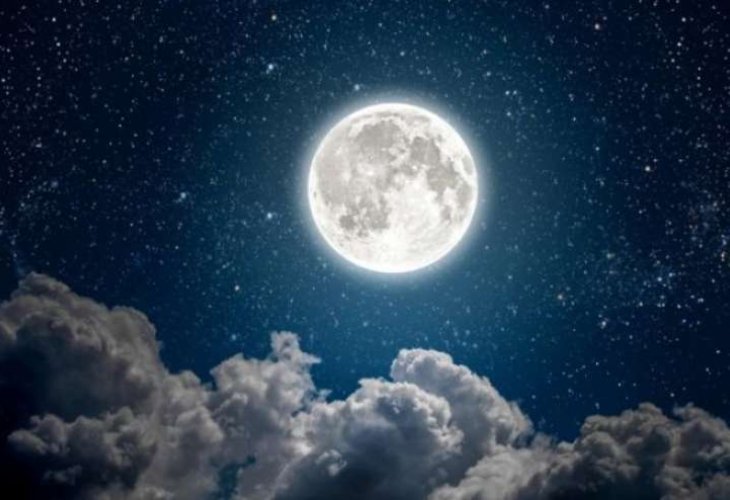Jewish Holidays & Festivals
Rosh Chodesh: The Hidden Power of the Jewish New Month
More than just a date on the calendar, Rosh Chodesh is a day of spiritual renewal, with a unique set of laws and practices.

Rosh Chodesh marks the beginning of each new month on the Jewish calendar and holds deep spiritual and historical significance. When a Jewish month is thirty days long, the final day of the month is also celebrated as Rosh Chodesh for the incoming month. This unique day influences the rhythm of Jewish life and is critical for determining all holidays, which follow the lunar-based Hebrew calendar.
A Day of Atonement and Spiritual Preparation
Rosh Chodesh is more than a new calendar page; it’s a day of atonement. The additional Mussaf prayer includes the phrase, “a time of atonement for all their descendants,” recalling the sin offering once brought in the Temple.
For deeper spiritual impact, Jewish tradition encourages preparation on the day before, known as Erev Rosh Chodesh. While fasting was once common, today it is often replaced with Torah study and charity. Some also recite special prayers known as “Yom Kippur Katan” near the afternoon service.
Rabbi Chaim Palagi wrote that those who host Torah scholars on Rosh Chodesh trigger blessings and prosperity for the entire month. He also emphasized that giving charity on this day is rewarded double.
Honoring the New Month with Joy
It’s a mitzvah, though not an obligation, to enjoy a special meal on Rosh Chodesh. Adding a unique dish to your table elevates the day. When Rosh Chodesh falls on Shabbat, the meal should include something distinct. If it spans two days, the celebration continues on both days.
Fasting and sadness are discouraged. Eulogies are avoided unless the deceased was a Torah scholar, and cemetery visits are postponed to another day. Visiting the graves of righteous individuals is permitted, as it does not evoke sorrow. On this day, even brides and grooms (who traditionally fast on the day of their wedding) are exempt from fasting.
Sacred Traditions and Guidance
Rabbi Judah the Pious cautioned against cutting hair or nails on Rosh Chodesh. Ashkenazi Jews generally follow this ruling, even when it falls on a Friday, while Sephardic Jews do not observe this restriction.
A Gift for Women
While work is permitted on Rosh Chodesh, it is ideally treated like Chol HaMoed, a time where mundane labor is reduced in favor of spiritual focus. Women, in particular, have a special connection to this day. After the Egyptian exodus, when the nation was in the wilderness, the women did not participate in the sin of the Golden Calf, and thus earned the merit to observe Rosh Chodesh more closely in both this world and the next.
Many women refrain from work, embracing the sanctity of the day. Psalm 103 hints at their reward: “Your youth is renewed like the eagle’s,” a renewal akin to the moon’s monthly rebirth.
Rosh Chodesh Prayers and Practices
Several changes occur in synagogue prayers on Rosh Chodesh. The special addition “Yaaleh V’Yavo” is included during the Amidah and Grace After Meals, asking God to remember His people for good. “Half Hallel,” a series of psalms praising God’s miracles, is recited after the morning Amidah.
Four people are called to the Torah for a special reading that includes the Rosh Chodesh sacrifices from the Book of Numbers. An additional Mussaf Amidah prayer recalls those sacrifices and ends with a blessing for Israel and the new month.
Tefillin are typically removed before Mussaf, aligning with the view that Rosh Chodesh itself is a “sign,” like Shabbat and festivals, making the wearing of tefillin redundant.
Psalm 104, “Bless Hashem, O my soul,” is added as the Song of the Day, highlighting the creation of the moon for appointed times.
When Rosh Chodesh Falls on Shabbat
If Rosh Chodesh coincides with Shabbat, the synagogue service uses two Torah scrolls, one for the weekly portion and another for Rosh Chodesh. The Haftorah comes from Isaiah and ends with the powerful vision: “From one new moon to another, and from one Shabbat to another, all flesh shall come to worship before Me.”
The Mussaf prayer reflects both Shabbat and Rosh Chodesh, emphasizing the sanctity of the day. During the afternoon service, the prayer “Tzidkat'cha” is omitted.
A Glimpse into the Past
In the time of the Temple, Rosh Chodesh was almost like a festival, with its own sacrifices and meals. It was a day for feasting, studying with teachers, and sometimes even abstaining from work. The Bible records David and Jonathan observing the New Moon with a special meal, and references suggest that work ceased in its honor.
Today, many of these customs remain symbolic, but their power persists in prayer and intention. The Mussaf liturgy includes a plea for the return of these offerings: “Prepare a new altar in Zion… Grant them love everlasting and remember the covenant with the ancestors.”
Rosh Chodesh may no longer carry all the public celebration it once did, but its spiritual light still shines. It is a quiet, powerful day for renewal, reflection, and reconnection; a monthly reminder that every beginning holds potential.

